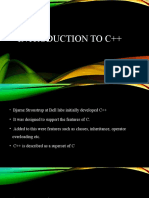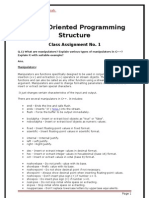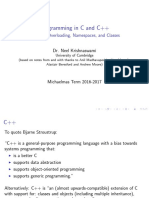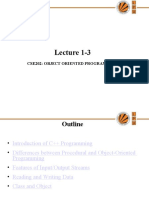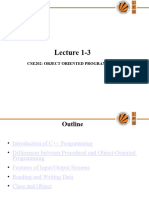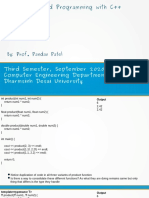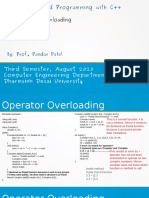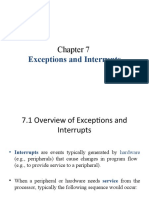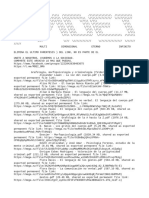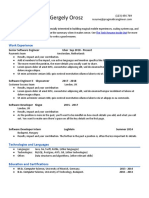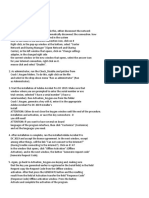0% found this document useful (0 votes)
84 views24 pages3 Namespaces Operators and Expressions
The document discusses C++ namespaces, operators, and expressions. It covers namespaces and how they provide a scope for identifiers and prevent name collisions. It describes the scope resolution operator (::) and how namespaces can be nested. It also discusses C++ operators such as memory management operators new and delete, type cast operators, and manipulators like endl. The document is a lesson on these C++ concepts by Prof. Pandav Patel for the Computer Engineering department at Dharmsinh Desai University.
Uploaded by
Utsav VedantCopyright
© © All Rights Reserved
We take content rights seriously. If you suspect this is your content, claim it here.
Available Formats
Download as PDF, TXT or read online on Scribd
0% found this document useful (0 votes)
84 views24 pages3 Namespaces Operators and Expressions
The document discusses C++ namespaces, operators, and expressions. It covers namespaces and how they provide a scope for identifiers and prevent name collisions. It describes the scope resolution operator (::) and how namespaces can be nested. It also discusses C++ operators such as memory management operators new and delete, type cast operators, and manipulators like endl. The document is a lesson on these C++ concepts by Prof. Pandav Patel for the Computer Engineering department at Dharmsinh Desai University.
Uploaded by
Utsav VedantCopyright
© © All Rights Reserved
We take content rights seriously. If you suspect this is your content, claim it here.
Available Formats
Download as PDF, TXT or read online on Scribd
/ 24








